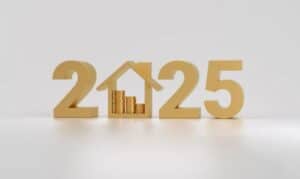We know that financial operations like reserve funds present a unique challenge to your Homeowners Association (HOA). Proper budgeting and allocation of HOA reserve funds can often leave you feeling confused about when you should (and shouldn’t) use them.
The purpose of a reserve fund is simple: it provides a way to pay for specific types of expenses over the long term.
However, how you manage and run your reserve fund is also critical to your community’s health and lifespan. Every HOA reserve fund has a direct impact on its community and the success of its association.
So, when it comes to HOA reserve funds, when should (or shouldn’t) you use them?
Before we tackle this question, let’s cover the basics.
HOA Reserve Funds vs. HOA Operating Funds
In addition to reserve funds, an HOA also manages operating funds. Both the reserve and operating funds require homeowners within the HOA to pay fees. These fees support the community by paying for various expenses.
This is why proper management of HOA reserve funds is so crucial. A well-funded reserve can help you make sure that any future improvements are fully funded, without dipping into your day-to-day funds.
It’s for this reason that it’s essential to recognize the differences between HOA reserve funds and HOA operating funds as it’ll help you understand when you should (or shouldn’t) use HOA reserve funds.
HOA Operating Funds
Operating funds finance daily or recurring HOA expenses. Recurring HOA expenses include things like:
- Insurance Premiums
- Security Services
- Janitorial Services
- Office Expenses
- Legal Expenses
- Property Management
- Regular Maintenance of Common Areas
The budget for HOA operating funds is usually determined by calculating operational expenses for at least 3 – 6 months. Homeowner fees help the HOA support this budget.
HOA Reserve Funds
Reserve funds pay for non-recurring expenses. They go toward big, future projects or improvements like pool repairs and replacing the clubhouse roof or community fence.
The HOA needs to know how much reserve funds to have available at any given time. However, budgeting for the unknown can be tricky. This is why it’s recommended that an HOA hires a professional to conduct reserve studies every 3 – 5 years.
A reserve study analyzes the HOA’s financial budget against the physical state of the community. The result is an estimated cost of what will require renovation, repairs, and replacement over a few years.
To help create a more accurate estimate, you should also inspect amenities every year. This will help the HOA to determine additional budget tweaks or changes.
When to use your HOA’s reserve funds
If you’re wondering whether or not you can (or should) use your HOA’s reserve funds for a particular expense, ask yourself these three simple questions:
Is this expense going toward a capital improvement?
If the answer to this question is ‘yes’, you cannot use your HOA’s reserve funds. Adding a new community feature or facility is considered a capital improvement.
HOA reserve funds only cover repairs, replacements, and unforeseen expenses. Something like a new building requires planning. Therefore, it requires a different fund to cover the cost.
Is this expense recurring?
If you need to pay for the same expense every month, it’s recurring. All recurring expenses must come out of your HOA’s operating fund.
Is the project long-term?
If the project will take longer than a few days, it’s likely considered long-term. These types of projects that don’t fall under ‘capital improvement’ typically use HOA reserve funds.
Some examples of projects that you’d finance with HOA reserve funds include:
- Major landscaping work
- Significant repairs to common area
- Fence replacement and repair
- Building a new community park
- Sidewalk replacement or repair
- Installing or replacing a swimming pool
Best practices for using your Reserve Funds
When it comes to best practices for using your HOA reserve funds, consider the following:
Reserve Fund rules and regulations
In general, when board members set reserve fund requirements, they need to think about:
- The types of unbudgeted expenses that come up
- How much it will take to pay for those unbudgeted expenses
- The savings required per year to handle the estimated cost
However, all reserve fund spending must also stick to community bylaws and regulations.
For example, according to California Civil Code §5550, an HOA is required to maintain reserve fund balances. The balance amount must be based on a reserve study done a minimum of once every three years.
The reserve study must also identify the assets and maintenance concerns the community must address, the annual contribution amount, and all significant community components’ lifespan.
Remember that different states across America have different HOA reserve fund rules and regulations.
The Checking vs. Savings Analogy

Here’s a fun analogy. Think of your operating fund as your checking account. After all, you use your checking account for every day, recurring expenses like groceries or utility bills.
However, your savings account is where you hold onto your reserve funds to pay for unexpected expenses, like that new pump for your pool.
When it comes to HOA reserve fund best practices, consider which account you would use to pay for the expense.
If your HOA wanted to update the clubhouse, this renovation project would likely come out of your savings account. Therefore, this renovation work would come out of the HOA reserve fund.
Let’s say you wanted landscapers to keep the community lawn freshly mowed every week. This would likely come out of your checking account. Therefore, landscaping would come out of the HOA fund.
If you wanted to install or replace a swimming pool, this would come out of your reserves since it is a significant expense.
The Main 3 HOA Reserve Fund Question
When all else fails, go back to the three questions you should ask when you’re unsure whether or not to use your HOA reserve funds.
Remember:
- Is this a long-term project? Use HOA reserve funds for long-term projects only.
- Is this a recurring expense? Your recurring expenses fall under HOA operating funds.
- Is this a capital expense? If it’s a capital expense, don’t use your HOA funds.
Managing your HOA Reserve Funds

Proper management of your HOA reserve funds can make or break your community. The last thing you want is to discover a major expense you can’t afford to fix.
To help you better manage your HOA reserve funds, here’s a list of tips to take into consideration:
- Adjust the budget when needed. Increasing fees incrementally over time is better than asking for a lump sum amount.
- Transparency is key. Keep homeowners up to date on your HOA reserve fund. If you need to increase fees, your homeowners will know why (and will likely understand).
- Stay on top of maintenance. It’s easier to fix smaller problems today than to deal with a big problem tomorrow.
- Conduct regular inspections and keep track of general wear and tear. This will help you to estimate when you might need to repair or replace equipment (or anything else).
- Hire a professional company to run an HOA reserve study. This will help you to determine the correct amount to budget.
How many years should an HOA reserve study include?
In a well-managed homeowners’ association, a percentage of the HOA annual budget will count toward the HOA’s reserve fund. There are typically two approaches to using HOA funds for unexpected costs related to repair and replacements: reactive and proactive.
The reactive approach to homeowners association (HOA) reserve funds means that you only repair, replace, or restore a capital asset when it’s no longer safe or functioning.
In contrast, a proactive approach to HOA reserve funds involves maintaining assets on a regular basis using the HOA operating fund. Any significant improvements or refurbishments to major assets that extend useful life are paid for using HOA reserve funds.
How do you account for reserve funds?

Reserve fund accounting may sound intimidating but it is fairly straightforward. In practice, you debit retained earnings and credit the reserve fund, also known as the equity account.
Every time you record a transaction for your HOA reserve funds, there’ll be two entries: the first entry to account for the cash and the second to record the reserve fund in the equity section of the balance sheet.
What are the different reserve funding methods?

There are numerous methods for funding a reserve account, each with its own benefits and drawbacks. The reserve funding method you choose depends on your objectives for repair and replacement tasks, as well as your annual budget.
The two primary methods for increasing HOA reserve funds are the cash flow method and the component or “straight line” method. The method you choose is determined by your reserve funding objective for covering replacement costs, large-scale costs, and other unexpected costs for extending the useful life of common area assets.
The cash flow method for funding HOA reserves involves making regular contributions to a designated financial account for HOA reserve funds. Any money spent on improving the HOA property through repair and replacement costs comes from these financial reserves.
The component method, on the other hand, involves setting up different accounts for each of your HOA’s assets. When repairs and replacements are needed for each of the assets, the cost is covered by pulling money from the designated account for each asset.
Click here to learn more about the methods used to fund HOA reserves.
How is a reserve study done?
Reserve studies involve several steps and stages to determine the overall financial health of a homeowners association community. Here are the various steps that reserve study professionals will go through as they prepare their reports for the HOA board.
Physical analysis
A physical analysis by a reserve study analyst includes a component inventory, an examination of the condition of HOA assets (known as condition assessment), and estimates of the useful life and value of all assets within the association.
Financial analysis
After performing the various steps of their physical analysis, analysts conducting reserve studies will calculate a plan for protecting the value and lifespan of HOA assets. The exact method used to increase HOA reserves will vary depending on whether the HOA board is more concerned with the costs for mere maintenance or is actively invested in proactively improving the common areas for the association’s members.
With a financial plan in place, board members can plan how they will cover costs using the money in the HOA reserves, without the need for HOAS to impose special assessments on its members.
Are reserve funds just for homeowners associations (HOAs)?
Because HOA management and reserves are so related, it’s common to think that it’s only associations who need to put money away for “rainy days.” However, in addition to homeowners associations, other types of owners often find the need to sock money and reserves away to avoid depleting cash fund accounts to cover costs (similar to HOAs).
One good example of this is tenancy in common (TIC) arrangements, in which two or more owners own a percent or share of a property. In this arrangement, repairs and other costs are typically funded through reserves that the co-owners contribute to each month so they can maintain and improve the common areas without depleting their daily money supply.
Click here to learn more about Tenancy in Common properties here.
Special Assessment Fees vs. Reserve Fund Contributions for HOAs?

Often, board members try to cover unexpected expenses by imposing a special assessment fee on the association’s members. However, although this may help the board to receive the needed money to cover large-scale fixes and upgrades, there are several reasons why relying on special assessments is a bad idea.
Residents prefer a schedule, not a surprise.
Most residents will be more than happy to contribute to their association’s reserve account to provide the needed money for major fixes and upgrades to the association’s property. What residents will likely NOT appreciate are surprise assessments to provide money for maintenance on major components.
This is often why many residents are careful to get a copy of the governing documents and CC&Rs from the board. They want to be well-informed on the details of the board duties and expectations listed in the governing documents.
Are you looking for more answers to your HOA Reserve Fund questions?
At California Builder Services, our team is here to help your HOA succeed! With over half a century of experience, our highly trained staff will conduct reserve studies on any size or type of development. We know how important it is to efficiently – and accurately – prepare a reserve study for approval by the Department of Real Estate’s investigators. Get in touch today and we’ll work together to help your HOA succeed.








